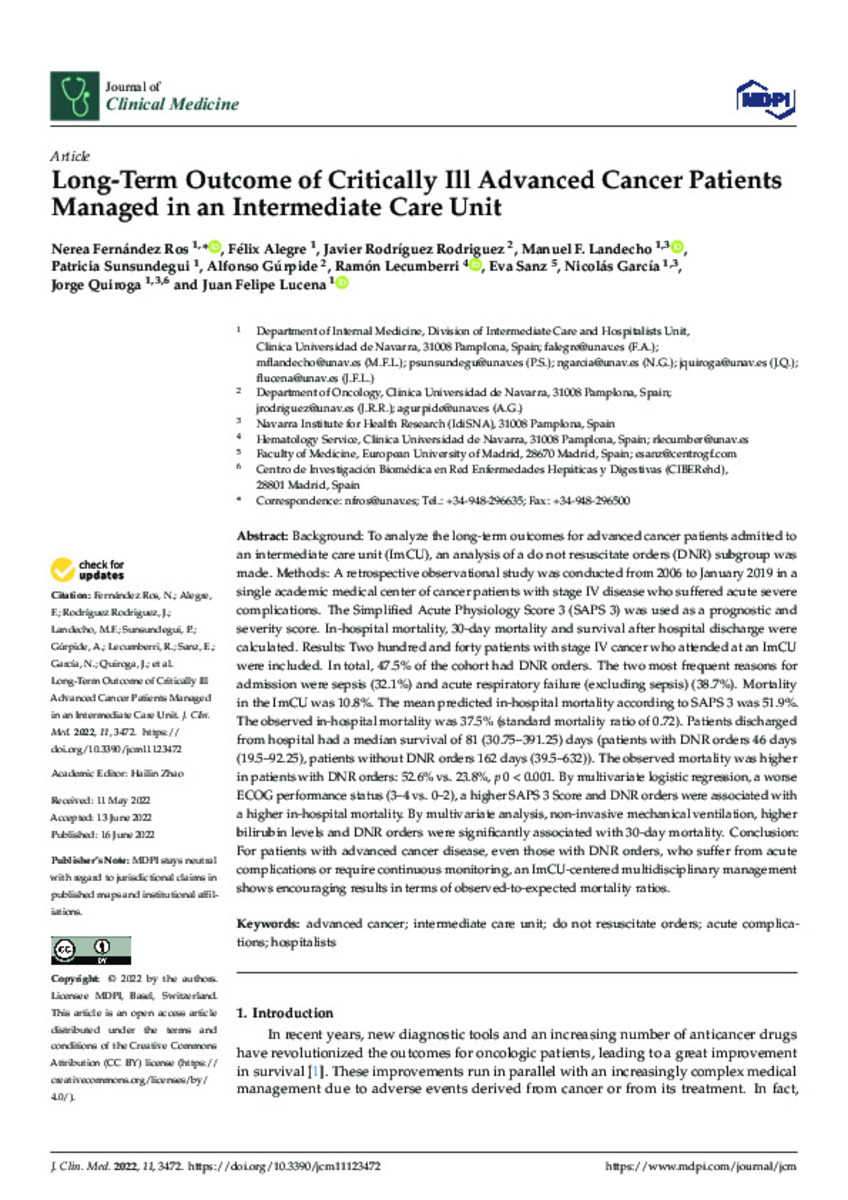Long-term outcome of critically III advanced cancer patients managed in an intermediate care unit
Palabras clave :
Advanced cancer
Intermediate care unit
Do not resuscitate orders
Acute complications
Hospitalists
Fecha de publicación :
2022
Nota:
This article is an open access article
distributed under the terms and
conditions of the Creative Commons
Attribution (CC BY) license
Cita:
Fernández-Ros, N. (Nerea); Alegre-Garrido, F. (Félix); Rodríguez-Rodríguez, J. (Javier); et al. "Long-term outcome of critically III advanced cancer patients managed in an intermediate care unit". Journal of Clinical Medicine. 11 (12), 2022, 3472
Aparece en las colecciones:
Estadísticas e impacto
0 citas en

0 citas en

Los ítems de Dadun están protegidos por copyright, con todos los derechos reservados, a menos que se indique lo contrario.







